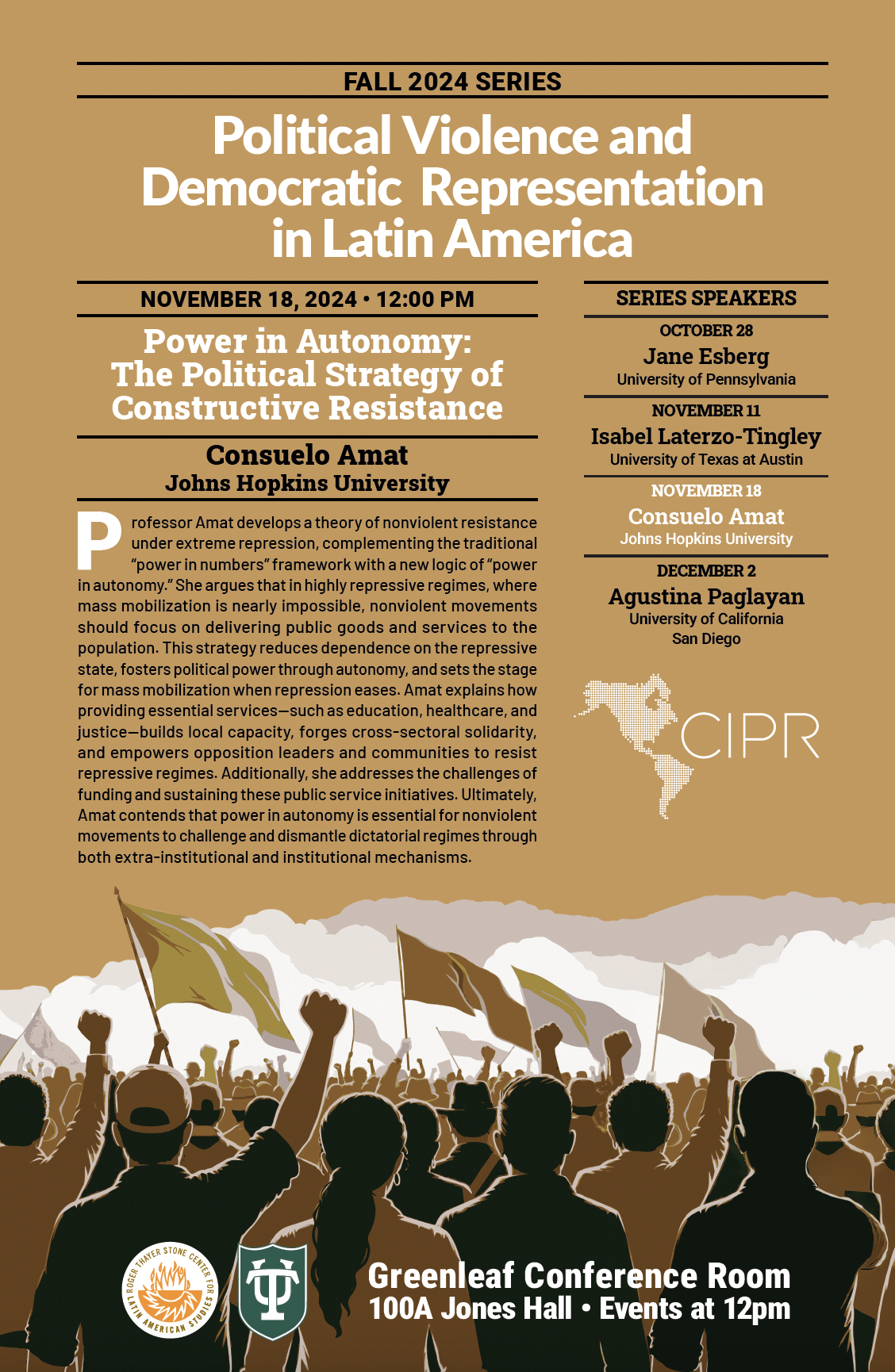
Professor Consuelo Amat (Johns Hopkins University) develops a theory of nonviolent resistance under extreme repression, complementing the traditional "power in numbers" framework with a new logic of "power in autonomy." She argues that in highly repressive regimes, where mass mobilization is nearly impossible, nonviolent movements should focus on delivering public goods and services to the population. This strategy reduces dependence on the repressive state, fosters political power through autonomy, and sets the stage for mass mobilization when repression eases. Amat explains how providing essential services-such as education, healthcare, and justice-builds local capacity, forges cross-sectoral solidarity, and empowers opposition leaders and communities to resist repressive regimes. Additionally, she addresses the challenges of funding and sustaining these public service initiatives. Ultimately, Amat contends that power in autonomy is essential for nonviolent movements to challenge and dismantle dictatorial regimes through both extra-institutional and institutional mechanisms.
